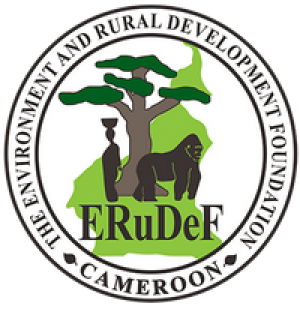As a result of the launch of the Rainforest Trust Mak-Betchou project in October 2016 and the Rainforest Trust project in Tofala in January 2017, a staff member from ERuDeF was sent to the Lebialem landscape to execute sensitization, identification and prioritization efforts of village-based conservation livelihood projects. These projects are to be developed through value-chain cassava production and palm oil. The aim was to aid improve the livelihoods of those living in the Lebialem landscape by changing their agricultural practices from subsistence to commercial agriculture. Over 25 villages in the Njoagwi-Fotabong III Esooh-Attah forest bloc and Tofala forest bloc in the Lebialem landscape have been sensitized. In addition priority projects identified are likely to be developed in those respective villages with technical assistance from ERuDeF.
This technical assistance mentioned will take the form of marketing research, provision of beehives to the various villages, training of villagers on the projects chosen, machinery for transformation of farm produce and micro credit provision through the Community Conservation Social Enterprise Development (CoCoSED) Initiative.
Each village was asked to identify five village-based conservation livelihoods projects in order of importance as well as which could yield economic benefits and conserve biodiversity. This exercise was executed in all villages adjacent to Mak-Betchou and Tofala forest blocs in the Lebialem Landscape. Common projects identified were as follows; cassava production, bee keeping, piggery, palm oil production and maize farming.
These projects identified are quiet economically viable and if developed, will bring sustainable development to villages and improve livelihoods. Sustainable development will in effect reduce pressure on the forest from the local community; consequently conserving biodiversity.
The locals of these villages were incredibly excited for this opportunity ERuDeF has brought to their door steps and have thus promised full collaboration for effective and successful implementation of the CoCoSED Initiative. They also expressed their gratitude to ERuDeF for igniting hope within them for the future development of their villages.
These projects will also aid in reducing pressure on the forest thus leading to biodiversity conservation.
